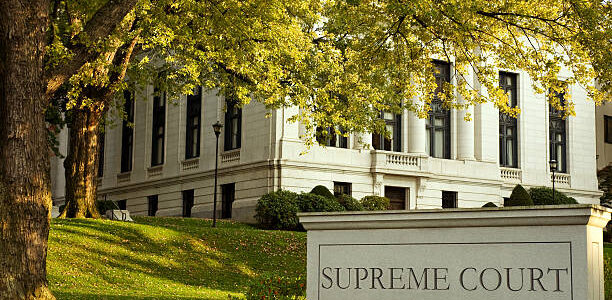BlogLine
Connecticut: Potential recovery of punitive damages in breach of contract actions when tortious conduct is alleged
5/20/25

By: Makayla C. Erazo
The Connecticut Supreme Court in McCarter & English, LLP v. Jarrow Formulas Inc. (351 Conn. 186 (2025)) adopted the majority rule that lays the groundwork for potential recovery of punitive damages in breach of contract actions that include allegations of independent tortious conduct. To recover common-law punitive damages for breach of contract, the existence of an independent tort for which punitive damages are recoverable must be pleaded and proved.
Jarrow Formulas Inc. (“Jarrow”) engaged McCarter & English, LLP (“McCarter”) to represent Jarrow in a contentious action brought against Jarrow. Shortly before trial, McCarter offered Jarrow a discount on its unpaid invoices in exchange for payment of all outstanding invoices. Jarrow agreed but paid only half of the amount owed. The jury returned a multi-million dollar verdict against Jarrow after the trial. On the eve of the verdict, Jarrow terminated its engagement with McCarter without informing the firm of its decision for several weeks. Jarrow, unsatisfied with the work performed by McCarter during the trial, refused to pay the last five monthly invoices for legal fees related to the litigation.
McCarter brought an action against Jarrow in the United States District Court of Connecticut, including a claim for breach of contract for more than $2 million in outstanding legal fees and expenses. The jury returned a verdict in favor of McCarter, awarded compensatory damages, and found that Jarrow’s conduct in breaching the contract was willful and malicious. The District Court thereafter certified the remaining question to the Connecticut Supreme Court: “Can a law firm recover common-law punitive damages, i.e., litigation costs including attorney’s fees, for its client’s willful and malicious breach of an agreement to compensate the law firm for legal services?” McCarter & English, LLP v. Jarrow Formulas Inc., Docket No. 3:19-cv-01124 (MPS), 2024 WL 754415, *12 (D. Conn. Feb. 23, 2024).
The Connecticut Supreme Court acknowledged that damages for breach of contract are generally limited to compensatory damages and can create tension with an award of punitive damages. Connecticut law is unique in that it limits common-law punitive damages to litigation expenses that may serve to compensate the plaintiff. The Court surveyed caselaw from Connecticut and other jurisdictions concerning the award of punitive damages in breach of contract cases, as well as relevant policy implications. The Court adopted “the rule followed by the majority of jurisdictions and the Restatements” and instructed the District Court that “a law firm may not recover common-law punitive damages for its client’s breach of contract unless it pleads and proves the existence of an independent tort for which punitive damages are recoverable.”
In its decision to join the majority of jurisdictions that allow recovery of punitive damages in contract cases based on independently actionable tortious conduct, the Court reasoned that such a rule provides adequate protection for plaintiffs while also providing clear guidance as to the circumstances in which punitive damages may be recovered. The Court noted that, alternatively, McCarter could have included a provision in its retainer agreement that addressed potential remedies in the event of a breach of contract. Overall, the Court decided that the rule was not at odds with the compensatory nature of breach of contract damages, given Connecticut law’s limits on common law punitive damages, to litigation costs minus taxable costs.
Please do not hesitate to contact Makayla C. Erazo at makayla.erazo@fmglaw.com or your local FMG relationship partner to discuss this case.
Information conveyed herein should not be construed as legal advice or represent any specific or binding policy or procedure of any organization. Information provided is for educational purposes only. These materials are written in a general format and not intended to be advice applicable to any specific circumstance. Legal opinions may vary when based on subtle factual distinctions. All rights reserved. No part of this presentation may be reproduced, published or posted without the written permission of Freeman Mathis & Gary, LLP.
Share
Save Print
